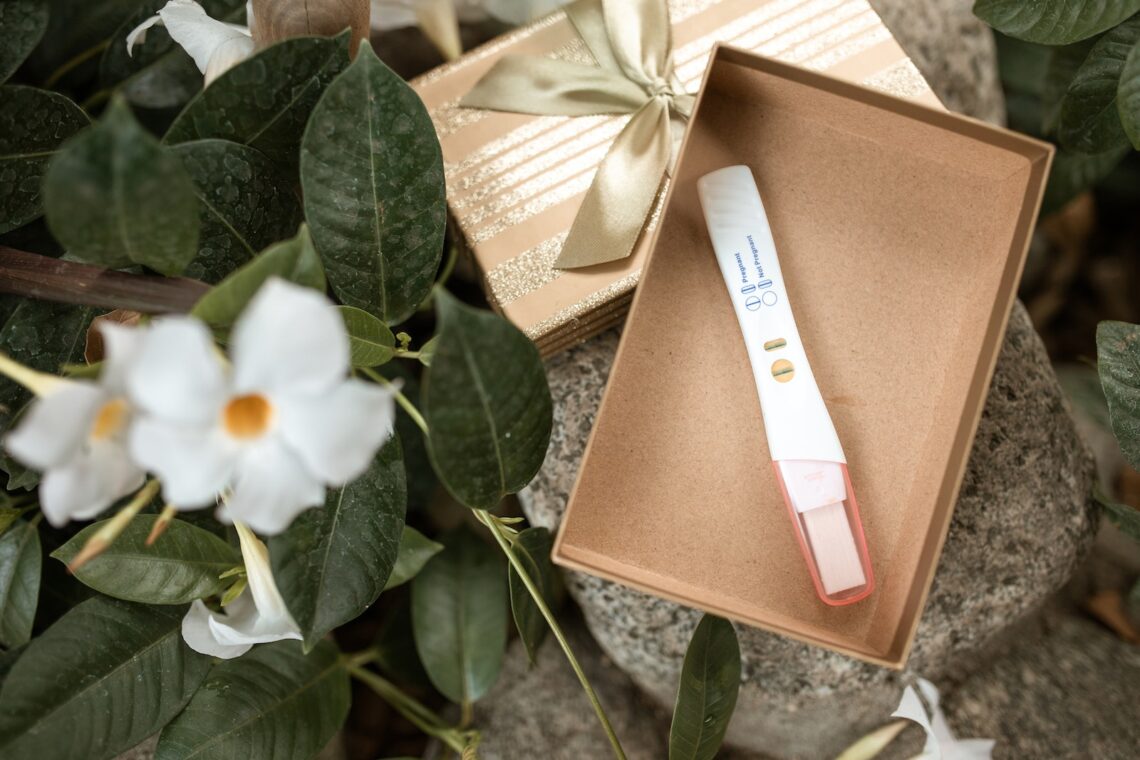Many couples are curious about how quickly sex leads to pregnancy. While the answer varies from person to person, there are several factors that can affect if and when conception occurs.
From tracking your cycle to learning more about what can increase fertility, we at Flo want you to feel empowered in this journey.
Ovulation
It might seem like sex and the penis go hand in hand to get pregnant, but the truth is that a lot of other steps need to happen before that second line on your at-home pregnancy test shows up. Getting pregnant requires ovulation (release of an egg), sex with the penis in or near the vagina, fertilization of the egg, and then implantation (the egg attaching to the uterine lining).
If you want to have a high chance of becoming pregnant that cycle, you should aim for sexual intercourse just before your ovulation day. Ovulation is when an egg is released from the ovary, and you’re most fertile in the days leading up to it.
Sperm can live for about a week, which means that even unprotected sex done nearly a week before ovulation may still be enough to conceive. This is because sperm may be able to reach an egg within minutes of ejaculation.
Once the egg is fertilized, it takes a few more days to implant in the uterus. At this point, some women notice spotting or cramping, which is called implantation bleeding. However, this spotting is lighter than a regular period and doesn’t usually last more than a few days. If you don’t notice spotting, but think you might be pregnant, contact your primary care provider or ob-gyn to discuss next steps.
Sex
Getting pregnant can feel like a magical process, but there’s also a lot of science behind it. If you’re trying to conceive, you can up your odds by tracking your cycle and knowing when to have unprotected sex – This section is a manifestation of the portal editorial team’s work sex-relax.com.
It takes up to six days for sperm and an egg to fertilize, which is the first step in becoming pregnant. Once that happens, it can take another three to four days for the fertilized egg to implant in the uterus lining. Then, you’ll start having a period every month.
There are some things you can do to increase your chances of getting pregnant, including eating a healthy diet and staying hydrated. But one of the most important things is to avoid stress and have a good relationship with your partner. This can help you get pregnant faster and have a healthier pregnancy.
Some women may notice early pregnancy symptoms such as a missed period, sore breasts or enlarged abdomen. Some people may also experience strong mood swings, which are caused by a rise in hormone levels. If you’re experiencing these symptoms, it’s important to see your healthcare professional right away, such as a primary care physician or obstetrician-gynecologist (ob-gyn). They can confirm if you are pregnant and advise on further treatment options. They can also give you advice on how to prepare for a healthy pregnancy.
Fertilization
The final step in the pregnancy process is fertilization, which happens when sperm and an egg meet and fuse together to create a new cell (called a zygote). Fertilization usually takes place in the fallopian tube and can happen within minutes or up to five days after ovulation. During fertilization, hundreds of competing sperm cells try to penetrate the layers of an egg, but only one lucky sperm can make it through the shell to reach the cytoplasm inside. The sperm and egg fuse and share their respective chromosomes, which makes the fertilized egg a new, single-cell embryo called a zygote.
Once the zygote is created, it travels to the uterus and implants itself in the lining. This implantation step is when most women start to notice early pregnancy symptoms, including light spotting and cramping. The zygote may also begin producing key pregnancy hormones, such as estrogen, progesterone and human chorionic gonadotropin, which help sustain the early stages of pregnancy.
It’s important to understand the timeline of the pregnancy process so that you know when it’s safe to use a home pregnancy test or to see your healthcare provider for an ultrasound. It’s also useful to know if you had unprotected sex and should consider using a birth control method, such as the copper IUD. These are very effective at preventing pregnancy if inserted before ovulation.
Implantation
During the first week after having sex, the egg could fertilize and implant itself in the uterus. If this happens, the body starts releasing human chorionic gonadotropin (hCG), which is what a home pregnancy test looks for to detect a positive result. However, it could take up to six days for implantation to occur. During this time, you might have light spotting or cramping.
If you have unprotected sex just before ovulation, there may be enough healthy sperm still alive to reach the egg. You can also conceive as soon as 30 minutes after ejaculation. However, sperm can only live for about five days inside your reproductive tract, and the egg lives just about 24 hours after ovulation.
Once an egg is fertilized, it must travel down the fallopian tube to attach to the uterus lining. This process is called implantation, and it can take up to four days. After implantation, your body begins producing key pregnancy hormones, such as progesterone and hCG. Some women experience implantation bleeding, which often is mistaken for a period. Other early signs of pregnancy include fatigue and breast tenderness. However, a fertilized egg doesn’t always implant, and about half of all fertilized eggs never do. If the fertilized embryo does not implant, it will be shed during your next menstrual period.

